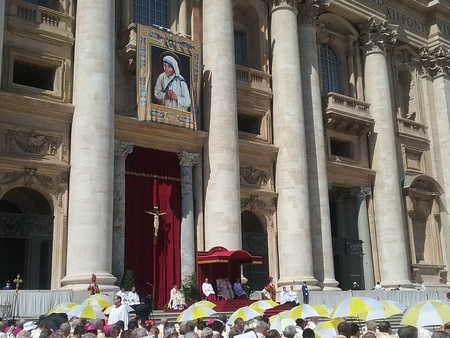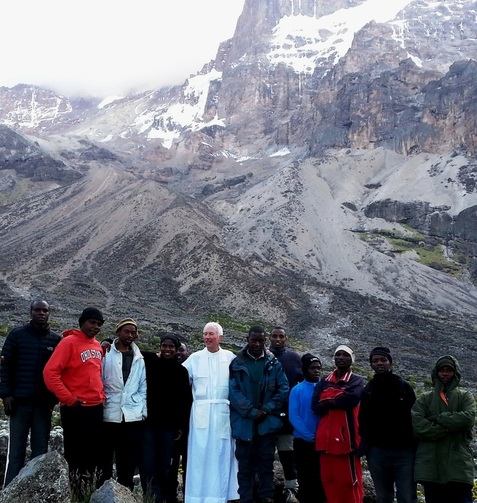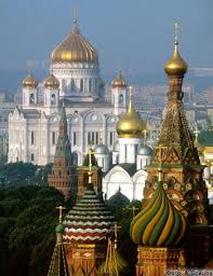 Pope Francis prays after Holy Communion this morning at Mother Teresa's canonization Mass
Pope Francis prays after Holy Communion this morning at Mother Teresa's canonization Mass Pope Francis had obligingly thrown a party in his audience hall for Rome's street people following the canonization. The sisters and some select priests had been invited, but Fr. Pascual and I had not been issued passes. At first a severe Italian guard threw me out as I tried to sneak in claiming to be "his friend," pointing to a homeless Romanian who had befriended me. That brief rejection by the authorities smarted, and I felt what the homeless feel every day as I saw everyone else happily entering the dinner. But soon enough my Roman collar got me past the guards and I was enjoying free pizza with the rest of Rome's poor. I'm writing this in one of Rome's cozy Irish pubs, with a guiness and bag of "crisps" in front of me, having paid my six euros to enjoy a place at the table. The poor had their pizza today, but no doubt are back in the streets tonight.
But back to the canonization Mass. We were like so many lobsters, baking in our juices under a relentless sun. Many of us braided bandanas or handkerchiefs around our heads, which provided amusement to those behind us but kept sunstroke at bay. Thanks to the Vatican police, we had plenty of bottled water as the Mass began. And what did our Pope say about our beloved Mother, beyond canonizing her? He spoke of mercy, of course, the kind of mercy Mother Teresa showed simply by smiling through her extreme darkness. "Thoughtfulness," she said, "is the beginning of great sanctity." To give a nobody a thought, a smile, even though you yourself feel completely empty, is the beginning and perhaps the summation of great sanctity. But where did she get the courage to smile and to serve the other person when she faced such deep inner darkness?
She had made this decision: I will not go against a king with 20,000 troops if I only have 10,000 (as Jesus counseled in today's gospel). I will be smart: I will only go against the armies of the world, the flesh and the devil by totally surrendering all that I have and am to the Lord of Hosts. I can never, of myself, have enough firepower to overcome my enemies. Only by surrendering everything to my Lord can I expect to overcome my own painful darkness. "So I tell you," Jesus said at Mother Teresa's canonization Mass, "that anyone who does not renounce all his possessions cannot be my disciple." She had the courage to do that, and so she won the war. Why were Fr. Pascual and I streaming tears as well as sweat this morning as Pope Francis recognized this heroic virtue? Because we know it to be true, a severely beautiful truth, that is not beyond the grasp of either of us, or any other in that packed St. Peter's Square this morning. "Holiness is the privilege of a few, but the simple duty of you and me," Mother would say. Not only the duty, but the privilege, one day, to join her with God in complete loving trust, which is heaven itself.






 RSS Feed
RSS Feed